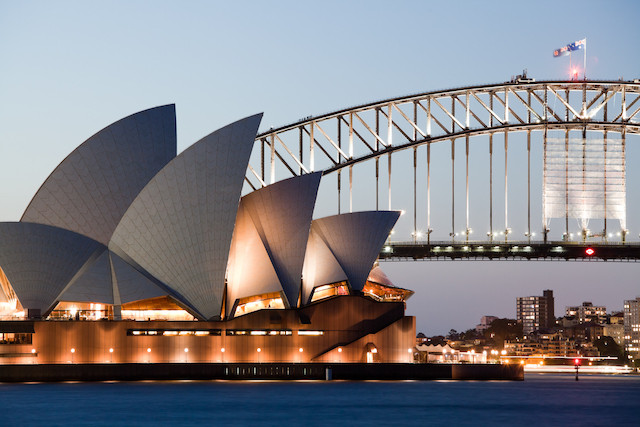Huang also criticised Australia’s domestic spy agency for acting contrary to Australian support for the One China policy, and urged it to instead investigate journalists who he said may be “serving foreign intelligence agencies” and had stolen “classified information to gain attention and a spotlight”.
The Chinese tycoon was effectively blocked from re-entering Australia when his permanent residency visa was revoked and a citizenship bid was rejected.
The Australian Security and Intelligence Organisation had reportedly cited his chairmanship of a pro-Beijing lobby group, the Australian Council for the Peaceful Reunification of China, which acts as part of a global influence network under the direction of the united front work department of the Chinese Communist party’s central committee.
Huang spoke out against his treatment in Global Times – a tabloid arm of the Communist party’s official newspaper group, People’s Daily.
#Australia has “characteristics of a giant baby:” tycoon Huang Xiangmo https://t.co/0GGzhfzZ5V pic.twitter.com/vG9WvzbnmW
— Global Times (@globaltimesnews) February 11, 2019
Huang said it was an “objective fact” that Australia was a “giant baby”, according to the interview, published on Tuesday in Global Times’ English language edition.
“The history of Australia has determined the innate characteristics of a giant baby,” he said. “This is an objective fact and it does not mean Australia has to feel inferior.”
“The growth of a giant baby takes time, and Australia still has a long way to go. I fully understand this.”
Some China observers, including Foreign Policy magazine’s Asia editor, James Palmer, said Huang may have been attempting to describe Australia as an “infant giant”, rather than a “giant baby”.
Honestly, I think that what Huang was trying to say was something like 'an infant giant' but kudos to the GT editor who was just like 'fuck it let's do this'
— James Palmer (@BeijingPalmer) February 11, 2019
interesting PR strategy https://t.co/c43VCCLHA1
— Fergus Ryan (@fryan) February 11, 2019
“I firmly believe, and I also hope that Chinese compatriots, especially the Chinese media, will also recognise clearly that the mainstream of Australian society, including the Australian media, could not be represented by some reports or reporters,” he said.
“It’s just we cannot be the ‘silent people’ any more and we should speak out, to let the world see Australia’s real public opinion, and avoid the country’s return to the White Australia policy and far-right populism.”
Reports in Chinese state media have suggested that Huang is planning to contest the government’s decision to revoke his visa through the administrative appeals tribunal This has not been independently confirmed by Guardian Australia.
Huang has played a significant role in Australian politics, as a huge donor to both major parties. He gave $5,000 to the Labor senator Sam Dastyari to cover the senator’s “legal bills”. Dastyari later allegedly warned Huang that he was under surveillance, though the senator continues to deny this.
Huang used his interview with Global Times to point out that his donations were within Australian law. He said his donations had been “calmly accepted” by the major parties and had not been refunded.
“As for my consideration for agreeing to donate, I admit it partly comes from the Chinese habit of treating other people in a nice manner and not accustomed to saying no,” he said. “But more importantly, I hope to promote Chinese people’s legal involvement in politics.”
He said he may have been the victim of a “party struggle” but he couldn’t know with certainty.
“However, I estimate that behind some media’s bizarre collaborative reports and bold claims of obtaining intelligence secrets that should not be obtained, there seems to be some strange power operating in a dark place outside the law,” he said.
“It will take time to gradually reveal the secret. I am confident that some organisations in Australia will need to apologise to me when the day of truth comes.”
Christopher Knaus
